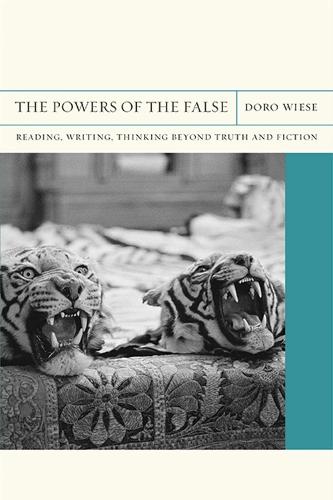Overview
Can literature make it possible to represent histories that are otherwise ineffable? Making use of the Deleuzian concept of """"the powers of the false,"""" Doro Wiese offers readings of three novels that deal with the Shoah, with colonialism, and with racialized identities. She argues that Jonathan Safran Foer's Everything Is Illuminated, Richard Flanagan's Gould's Book of Fish, and Richard Powers's The Time of Our Singing are novels in which a space for unvoiced, silent, or silenced difference is created. Seen through the lens of Deleuze and his collaborators' philosophy, literature is a means for mediating knowledge and affects about historical events. Going beyond any simple dichotomy between true and untrue accounts of what """"really"""" happened in the past, literature's powers of the false incite readers to long for a narrative space in which painful or shameful stories can be included.
Full Product Details
Author: Doro Wiese ,
Ed Dimendberg
Publisher: Northwestern University Press
Imprint: Northwestern University Press
Dimensions:
Width: 15.50cm
, Height: 2.00cm
, Length: 22.80cm
Weight: 0.440kg
ISBN: 9780810130043
ISBN 10: 0810130041
Pages: 336
Publication Date: 30 November 2014
Audience:
College/higher education
,
Undergraduate
,
Postgraduate, Research & Scholarly
Format: Paperback
Publisher's Status: Active
Availability: Available To Order

We have confirmation that this item is in stock with the supplier. It will be ordered in for you and dispatched immediately.
Reviews
The Powers of the False is undeniably brilliant, rich in its suggestiveness, fertile in its theoretical apparatus, perspicuous in the readings of the three novels it offers in support of its central Deleuzian hypothesis: namely, that in literary writing in our time, there is utilized a kind falsity or falseness which, going beyond the distinction between truth and fiction, summon or call up a virtual audience comprised of the descendants of all of those persons and things of the past who have been ignored, oppressed, or simply eliminated (as in the Holocaust) without benefit even of the registration of their existence. --Hayden White
<i> The Powers of the False </i> is undeniably brilliant, rich in its suggestiveness, fertile in its theoretical apparatus, perspicuous in the readings of the three novels it offers in support of its central Deleuzian hypothesis: namely, that in literary writing in our time, there is utilized a kind falsity or falseness which, going beyond the distinction between truth and fiction, summon or call up a virtual audience comprised of the descendants of all of those persons and things of the past who have been ignored, oppressed, or simply eliminated (as in the Holocaust) without benefit even of the registration of their existence. --Hayden White
Author Information
Doro Wiese is a lecturer in comparative literature and gender studies at Utrecht University.




